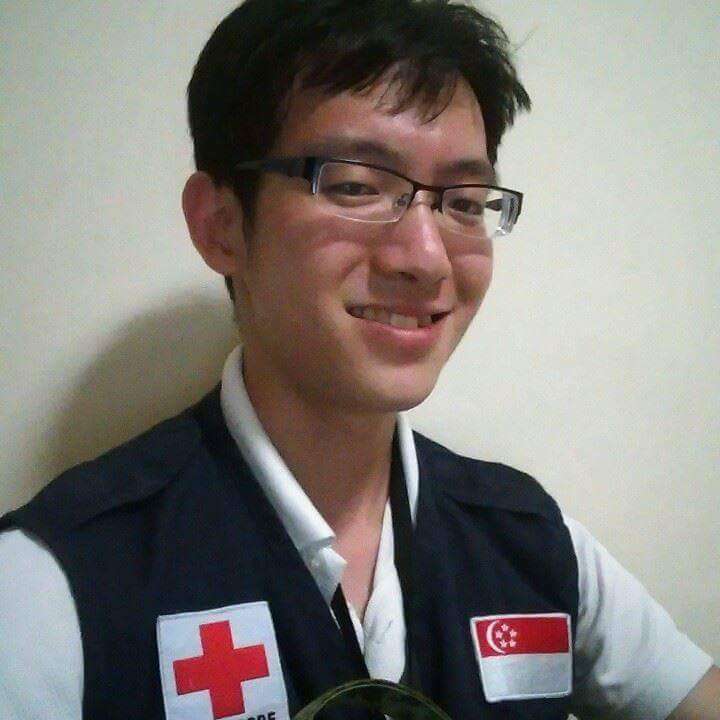Duke-NUS student Anthony Li learnt that this innocent question can come with big implications.
“You must feel quite worried.” Duke-NUS student Anthony Li learnt that this innocent question can come with big implications.
It was a cold Friday morning, 7.30am in the Obstetrics and Gynaecology ward. The rain continued to pour as I looked out from the windows. Bracing myself to approach a patient, I checked my equipment - notebook, pen, stethoscope, log book. I made some feeble attempts to straighten my white coat.
Having done that, I swung into the ward and approached the first bed. It was a young lady in her early 30s. She laid there with an obviously gravid womb. Covered in 2 layers of blanket, she was busy swiping at her phone.
With the weather outside I half expected her to be deep in sleep like the rest of the ward. I walked up to her, straightening my posture as I approached. After a quick introduction, she agreed to speak with me for a few minutes.
I asked why she was admitted. Expressionless, she spoke about how she noticed abnormal vaginal discharge a few days ago. Unable to detect the emotion of the patient, I threaded carefully, making an attempt to be as sensitive as possible when I realised that her pregnancy was endangered by a premature rupture of membrane. She was only in the 26th week of pregnancy.
Trying to recall the skills taught in school about active listening and empathy, I sought a balance between trying to confirm the diagnosis based on what she told me and trying to understand her current state of mind.
As the words left my mouth, I thought I had successfully managed to empathise with the patient. At that moment, I must admit I was quite pleased with myself although I failed to detect the awkward few seconds of silence after that.
As my history taking was approaching an end, she mentioned that she was asked by the doctors whether she wanted to deliver the baby as her unborn child was having problems and it was suspected that she had contracted an infection during her pregnancy.
I was stumped. I wondered how worried she must have felt when the doctor laid out those facts to her. What made it worse was that this current pregnancy was achieved with much difficulty having gone through reconstructive surgery of her previously blocked fallopian tube and multiple sessions of in vitro fertilisation.
Her eyebrows furrowed for the first time as we touched on the topic. Detecting worry on her part, I said innocently and without any intent of malice, “You must have been quite worried throughout this entire period.”
As the words left my mouth, I thought I had successfully managed to empathise with the patient. At that moment, I must admit I was quite pleased with myself although I failed to detect the awkward few seconds of silence after that.
Having no clue about the implications of the statement I just made, we eventually moved on to discuss other aspects of her current admission. With the interview closed, I decided to seek feedback from the patient about her comfort level with the questions I asked and the things I said. What came caught me with total surprise.
“After you mentioned ‘You must have been quite worried’, I became more worried. Previously, I was not thinking so much about it, now I am.”
My heart sank. I apologised profusely for my statement thereafter. However, I was grateful that the patient sounded out this flaw of mine. It was not the first time I made such a statement feeling that I had done the right thing. I had little knowledge about how that statement could have caused more harm than good.

After much reflection, I realised why it was wrong on multiple levels. First of all, I was assuming that the patient was extremely worried about her medical condition by default. Although this might be true, the patient could have developed coping mechanisms to deal with her emotions and she most definitely did not need a reminder from me on the severity of the situation.
Secondly, there are other ways of telling her that I understood her emotions other than “You must have been quite worried.” For instance, I could have hinted that I empathised with her by asking her to share her thoughts with me – “I am concerned about what is going through your mind right now after being told about your medical condition. Can you please tell me more?”
Thirdly, I committed a major mistake with respect to learning. I assumed that some of the most common questions and statements I have made in the course of history-taking and physical examination were appropriate. Had I stopped more frequently to ask for more feedback from patients and reflect on them, I could have identified this flaw at a much earlier stage of my medical education.
While I had expected most of the patients in the ward to be asleep that morning I did my rounds, I was glad that particular one wasn’t. Her honest feedback to our interaction had given me the chance to reflect and improve on the way I talk to future patients like her.
Anthony Li participates in the Duke-NUS’s Hybrid Longitudinal Integrated Clerkship Programme, during which medical students undergo immersive learning in inpatient and outpatient settings, and gain integrated cross-disciplinary clinical experiences.
